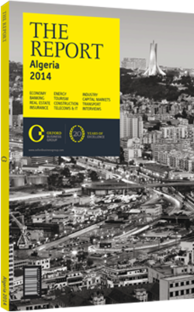OBG talks to Amara Benyounes, Minister of Commerce

Interview: Amara Benyounes
How has the EU free trade agreement (FTA) affected the competitiveness of Algerian companies?
AMARA BENYOUNES: The FTA went into force in 2005 to create a win-win partnership, as well as attract investment, promote competitiveness and diversity exports. In trade terms, the result has been to our disadvantage so far, as imports from the EU have risen from €10bn in 2004 to €28.5bn in 2013, while non-hydrocarbons exports to the EU have been stable, at €1.1bn per year. After negotiating with the EU, Algeria revised the tariff dismantling of industrial products and the tariff quotas for food products by postponing the creation of the free-trade zone from 2017 to 2020. As the EU remains our main trading partner, we have implemented several incentives, such as tax exemptions on export activities, to encourage local firms to export to EU markets. Beyond trade, it is imperative for us to spur foreign investment and facilitate the transfer of skills and technology in strategic areas so local companies can update their production capacity and boost competitiveness.
What is the current progress on negotiations for accession to the World Trade Organisation (WTO)?
BENYOUNES: Algeria formally applied for accession to the General Agreement on Tariffs and Trade in 1987. Negotiations started effectively in 1996 with a checklist on external trade. WTO members then submitted 300 questions, which Algeria answered, followed by the first meeting of the task force in April 1998. However, the process was interrupted, as priority was given to negotiating the EU association agreement. After that agreement was finalised in 2002, WTO negotiations resumed. Algeria updated its checklist and introduced offers on tariffs and service market access. The process stalled in 2008 due to the global economic crisis, but was relaunched in 2012 and is continuing normally. Algeria has made some progress on multilateral negotiations, with two amendments to the draft report and the discussion of the necessary commitments. Six bilateral agreements have been concluded with Cuba, Uruguay, Venezuela, Brazil, Switzerland and Argentina, and the plurilateral negotiations on agriculture are about to be finalised. During the last meeting in April 2014, WTO task force members expressed satisfaction with Algeria’s progress. The country is now preparing for the task force’s 13th meeting in the first half of 2015, during which further progress should be made.
What are the biggest challenges that Algerian exporters face in reaching European markets?
BENYOUNES: Our absolute priority is orienting our economy towards further diversification and developing more varied, competitive export capacity on a regional scale. To this effect, a strategic partnership has been signed by the National Agency for the Promotion of Exports, UBI France and the Austrian Development Agency to reinforce our operational capacities in terms of business intelligence. A partnership has been also formed with Algeria’s Ministry of Agriculture and Rural Development, France and Italy to improve safety standards and implement a labelling system for agricultural products. However, Algerian exports are still small, as companies have focused on the domestic market. As our economy opens up, firms will face greater international competition and must target new markets. It is therefore imperative for Algeria to acquire new equipment and know-how, and implement efficient training programmes to develop a competitive offer.
How can Algeria increase interregional trade?
BENYOUNES: Regional political instability has hindered interregional trade over the past three years. However, Algeria is putting strategic transport infrastructure in place, such as the Hauts Plateaux, RN1 and TransSaharan Highways. This will give neighbouring, landlocked countries access to the Mediterranean via our ports, as security is re-established. Algerian firms have shown continued interest in exporting to sub-Saharan Africa and must better leverage cultural links and trade agreements to grow market share in these economies.
You have reached the limit of premium articles you can view for free.
Choose from the options below to purchase print or digital editions of our Reports. You can also purchase a website subscription giving you unlimited access to all of our Reports online for 12 months.
If you have already purchased this Report or have a website subscription, please login to continue.

